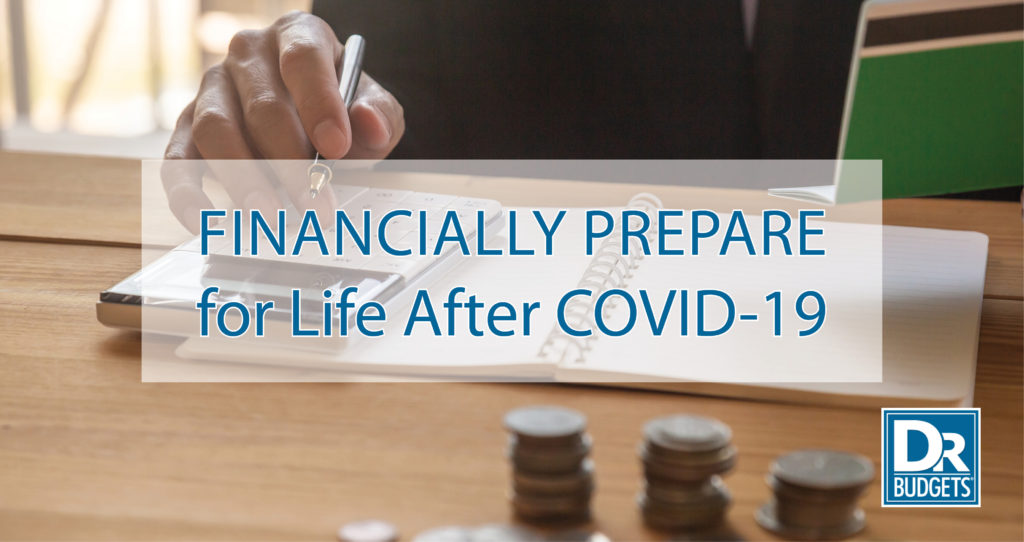
Our lives have been turned upside down because of the pandemic, so I wanted to share what you can do now to financially prepare for life after COVID-19. As a side note, if you are facing financial hardship right now, please read our last post titled Coronavirus Outbreak Financial Tips. Since we don’t really know when our lives will return back to normal or what “normal” will be like after this, I wanted to share some timeless tips that will not only work now, but also in the future. We can only control what is within our influence, so here are things that are within your control that will allow you to financially prepare for life after COVID-19:
1) Cut Unnecessary Recurring Expenses. This is an area I believe we should revisit at least annually. Now is an especially great time to cut or reduce any unnecessary recurring expenses. The first step is to list out all your recurring charges. For example, mortgage/rent, auto payments, all your insurance payments, cable, cell phone, gym memberships, etc. Once you have put together your list, look at each one, then decide whether you are receiving enough value from it to keep it. If you feel you are, then put a checkmark next to it. But, if you feel you aren’t, then put a line through it. If you have any remaining items on your list that you are on the fence about, determine if those items can be reduced somehow. What you are paying for the product or service should match the value you feel you are receiving from it. Once you have completed this exercise, cancel the expenses you crossed off. Finally, reduce the ones you were on the fence about or cancel them, if possible.
2) Build Upon New Spending Habits. Your financial situation is a combination of your spending habits. And these extraordinary times may have forced you to change some of those spending habits. For example, you may be dining in much more than dining out right now. This might have forced you to learn how to make eating at home work for you and your family. Once this is all over, you might be able to maintain this habit for most meals. This, in turn, will save lots of money that you used to spend at restaurants! Take a look at where your spending has been reduced, then determine if you can maintain some of these new habits when life gets back to normal.
3) Build Emergency Savings. With the savings from the first two tips mentioned above, you can now allocate some of that money toward building your emergency savings. I would first build a small “buffer” in your checking account. A simple way to implement this is to build a $1,000 reserve in your checking account. The goal then is to never let your balance dip below that amount. I always like to say that you should pretend that $1,000 is your new $0 balance. After you have done this, open an online savings account (such as Ally Bank, Capital One 360, or American Express Bank), and start building up that account until you fund it up to an amount that gives you peace of mind. A good rule of thumb is three to six months of expenses.
4) Pay Off Debt. If you have high-interest debt, such as credit card debt, now would be a good time to pay it off. You can use some of the savings from the first two tips to knock out your credit card debt as quickly as possible. I would first build up the $1,000 checking account “buffer” (see tip #3 above), then pay off the high-interest debt. After you have accomplished this, then proceed to build up your emergency savings in an online savings account. Alternatively, you can simultaneously build your online savings account and pay off your debt. This is a good idea if you feel more secure having money in the bank rather than eliminating your credit card payments.
5) Refinance Debt. This one might be a little challenging during these times, but it is worth mentioning. Interest rates have been falling, so if you can refinance some of your debt, now might be a good time to do so. Lowering your interest rate will reduce your monthly payments and save you money in interest over time. You can also reduce the amount of time it takes to pay off your debt if your keep your payments at the same level after refinancing.
These are the 5 things you can do now to financially prepare for life after COVID-19. For some additional tips, please download our FREE ebook (10 Ways to Save $10K) if you haven’t done so already. If you are not a Dr. Budgets client and would like to learn more about our services, click here to schedule your complimentary consultation via Zoom.